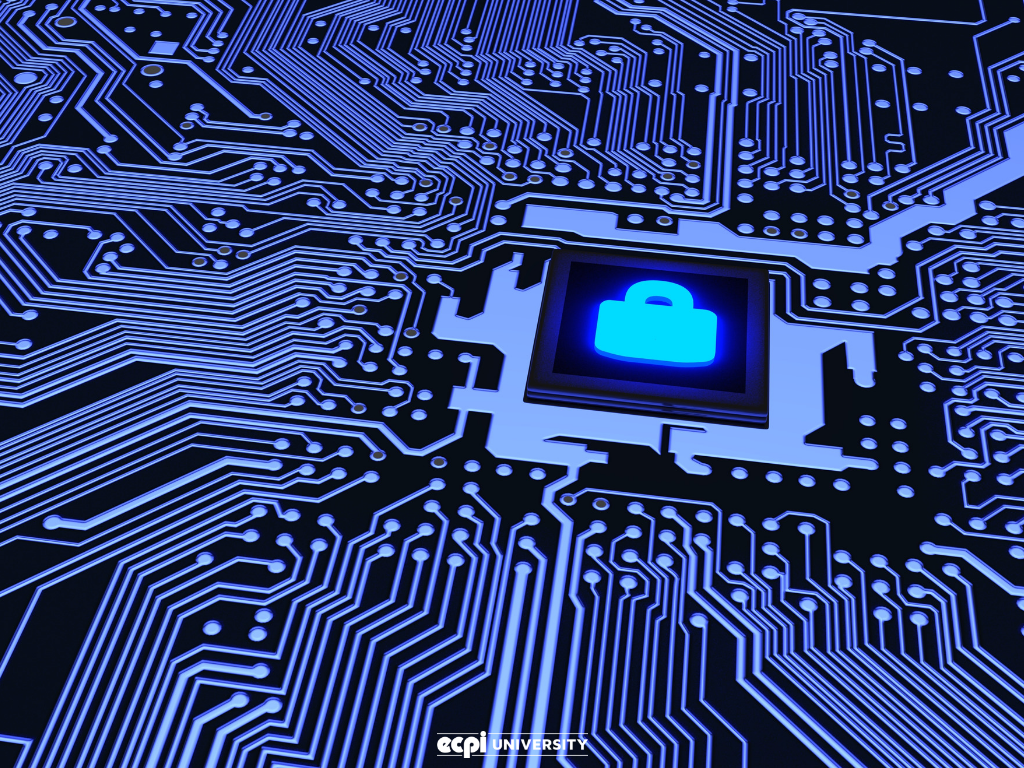What Exactly is Cybersecurity: Do I Need a Degree in the Field to Work in It?
Even if you only know a little about how computers and networks work, you have likely seen dramatizations of it in media or heard news reports discussing it with a dramatic tone that sparked your interest. Now, you are probably interested in learning more about what cybersecurity professionals do, their importance, the economic viability of the job, and the pathways to a career as one.
What Do People Do in Cybersecurity Roles?
When browsing a website, you're interacting with technology that is spread across numerous computers and programs with an untold number of developers having touched the code. Each piece of the puzzle allows the complex marvel to operate, but they also represent a potential vulnerability that can be exploited. In cybersecurity, you might focus on solving problems in one piece, where pieces are joining together, or across a wide spectrum of connected devices and protocols.
It can involve hardware, software, or the fuzzy middle ground of firmware, so you may go from fiddling with the insides of a router to editing a block of code on the same project. You may spend months trying to find every possible flaw in one program, or you may do penetration testing against the digital defenses of a company who needs you to find their weaknesses. There is also a place for psychology sociology since hackers (intentionally) and users (unintentionally) will inevitably find a way to break the system.
What Happens without Cybersecurity?
Even with trained and dedicated cybersecurity professionals, there are constantly evolving threats that pierce through the defensive layers.
In 2018, hackers used a mix of technical knowledge and social savvy to create emails that tricked personnel from over 300 universities, almost 50 companies, and several governmental organizations into handing over their login information. They used it to steal $3 billion in data.
Some victims find their data encrypted and locked behind a ransom note. The average payout: $5 million. Sneakier attacks leave a piece of code that uses your system's unused resources - and your power - to solve problems to earn cryptocurrency or participate in Distributed Denial of Service (DDoS) attacks.
There may not even have to be a hacker for a threat to exist. A bug in the Google+ social network revealed personal information of 500,000 users that included vitals like their name, birthday, and the places they've lived.
Without cybersecurity professionals, these types of breaches happen more frequently. IT would be untrustworthy, and everyone would go back to using pen and paper to avoid the constant losses incurred by trying to do their business online. The Internet and the world of technology in which we live would not be anything like it is now, if it existed at all.
How Profitable Is a Career in Cybersecurity?
While it's important to select a career that you like, it's also important to be able to support yourself and your family. According to the Bureau of Labor Statistics, the field has a 28% expected growth rate for 2016-2026, so you can reliably expect there to continue to be a wide selection of positions available.
Can You Work in Cybersecurity without a Degree?
While there are pathways to a cybersecurity career without a degree, they will typically start at lower positions, require an independent and determined spirit, and will have to fight to overcome the lack of a degree when seeking job positions. Several of the lowest tiers of IT certifications, like the Associate level from Cisco, can be taken with minimal or no prior experience.
The problem then is that the other applicants will likely have at least an associate's degree and most, if not all, of the same certifications. You will likely want to add in personal projects related to cybersecurity that you can show as a demonstration of your skill and dedication. Participating in cybersecurity conferences or forums may provide some networking advantages if you can impress the right people. Again, there will be other applicants who have the same credentials with the addition of a degree, so you might find yourself working for lower compensation even if you do land a competitive position.
How Can I Get a Start into Cybersecurity?
Are you interested in making a difference in the world of cybersecurity? If you want to earn a Bachelor of Science in Computer and Information Science with a Major in Cyber and Network Security - Cybersecurity Track, ECPI University offers this degree at an accelerated pace. For more information, connect with a helpful admissions advisor today.
It could be the Best Decision You Ever Make!
DISCLAIMER – ECPI University makes no claim, warranty, or guarantee as to actual employability or earning potential to current, past or future students or graduates of any educational program we offer. The ECPI University website is published for informational purposes only. Every effort is made to ensure the accuracy of information contained on the ECPI.edu domain; however, no warranty of accuracy is made. No contractual rights, either expressed or implied, are created by its content.
Gainful Employment Information – Cybersecurity Track - Bachelor’s
For more information about ECPI University or any of our programs click here: http://www.ecpi.edu/ or http://ow.ly/Ca1ya.





